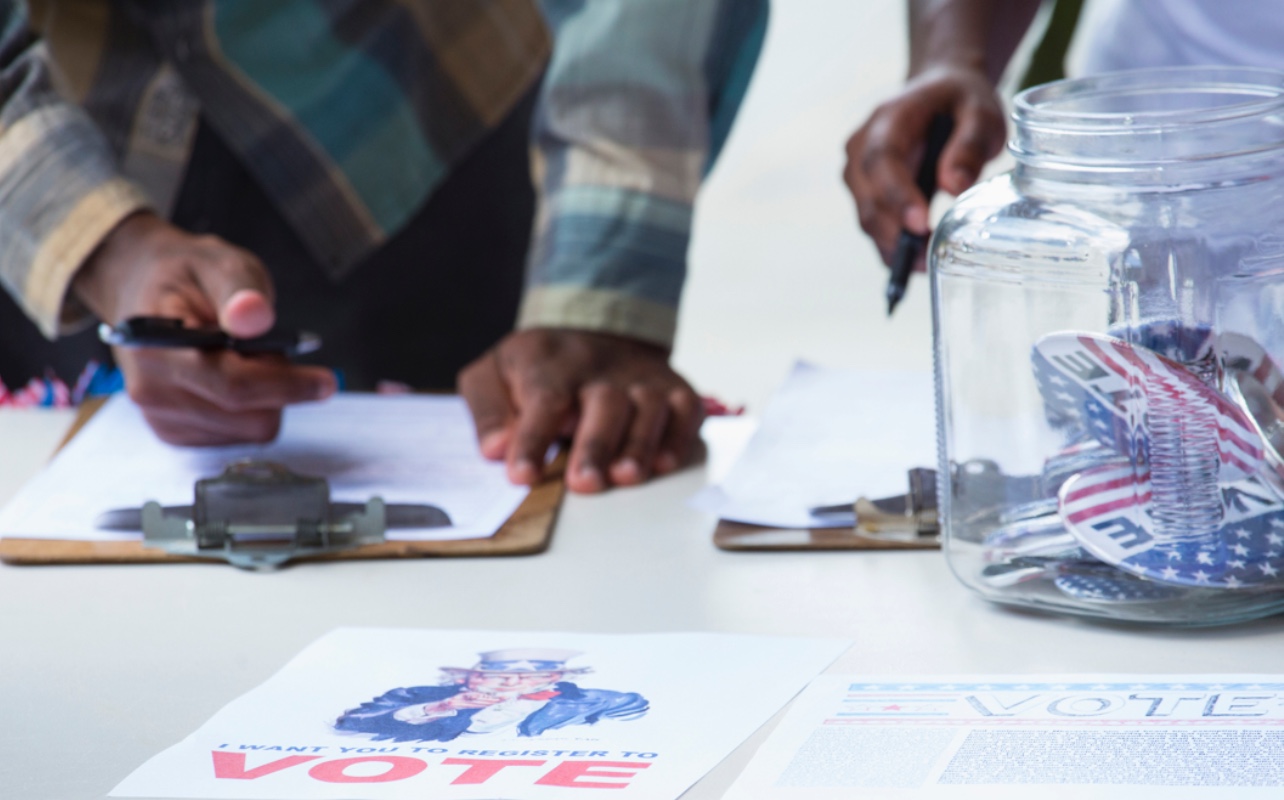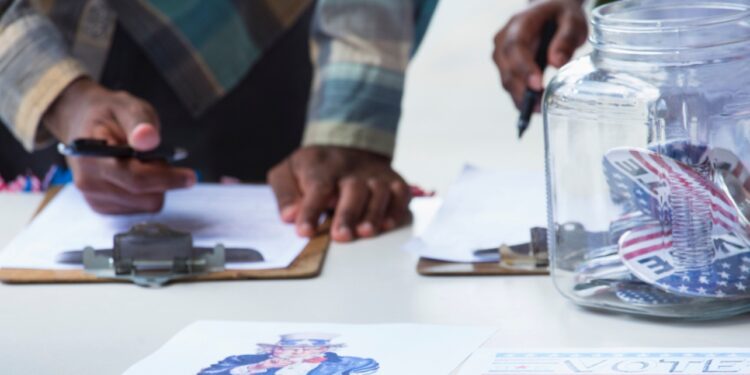
September 10, 2024
There are “sophisticated disinformation campaigns” targeting Black voters, a new letter states.
As the November election inches closer, the “immense” power of Black voters is under threat by “sophisticated disinformation campaigns,” a new letter states.
Organizers within Onyx Impact, a nonprofit organization dedicated to combating disinformation within the Black community, have come together to release a letter informing Black media and the Black community about the disinformation being used to try to thwart Black voters.
Signed by Onyx Impact members like Judith Browne Dianis of the Advancement Project, Mondale Robinson of the Black Male Voter Project, Maurice Mitchell of the Working Families Party, and Glynda C. Carr of Higher Heights, the letter follows a report released earlier this year, that identified more than 40 million Americans within Black online spaces who may have been given disinformation about this year’s election.
“During a historic election year where critical issues that will determine the future of our communities are on the ballot, including the economy, healthcare, voting rights, and more, it is essential that Black media and Black Gateway Influencers and Platforms have the resources and tools necessary to stem the rising tide of disinformation and provide their growing audiences with even more accurate information,” the letter reads in part.
The report identified several threats to Black voter participation, some that worked to ignite civic disengagement, make claims of unfulfilled promises by President Biden, and efforts to incite division. Much of the disinformation was spread by far-right activists, including Black far-right activists, the report found.
“It’s because of the massive political power of Black communities that we see efforts to try to stem their participation, to try to sow division in our communities, to try to directly push back on our power,” Esosa Osa, founder of Onyx Impact, told The Hill.
“As we’re heading into this election, it’s incredibly important to recognize that while Black folks are not more susceptible to disinformation, they are the targets of sophisticated disinformation campaigns.”
The letter goes on to cite America’s history of steering away Black voters through disinformation strategies done to combat the Black community’s voting power.
“During Reconstruction and the Civil Rights Movement, disinformation was used to mislead, intimidate, and harm Black voters in an attempt to thwart their participation in the voting process,” Onyx Impact writes. “While the methods, technologies, and sophistication of disinformation have changed, the intent remains the same—to prevent, discourage, and dissuade Black voters from exercising their immense power at the ballot box.”
In response to the disinformation campaigns, Onyx Impact is calling on the media and influencers to help counter the effects through four courses of action: Elevating the voices of trusted Black leaders, encouraging audiences to verify sources, staying mindful of divisive content, and investing in fact-checking resources.
“We all need to be, especially right now in the cycle, very cautious of overly negative emotional content online, that’s primarily where we’re likely to see false and misleading narratives,” Osa says.
“If you do have a very strong negative reaction, that’s when you need to stop, take a breath and double-check.”
In May, the Pew Research Center released a study on the critical role Black voters will play in determining the outcome of the 2024 presidential election. In March, another study revealed that part of former President Donald Trump’s relatively strong polling against President Biden at the time, both nationally and in state polls, stems from his unexpectedly high support among Black voters.
Considering the power of Black voters, it’s clear why they’re being targeted with disinformation campaigns.






